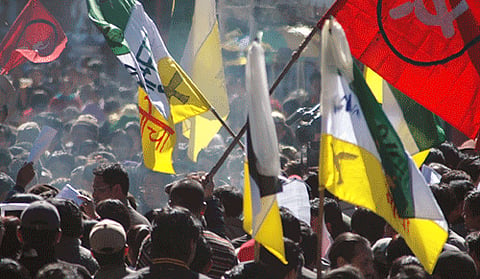How not to write a history of Gorkhaland
The first chapter of my personal story of Darjeeling would be similar to Romit Bagchi's. His book, Gorkhaland: Crisis of Statehood, begins with a job posting:
It was nothing short of an adventure when I undertook the perilous journey into the subjective world of the Gorkhaland movement. A perilous journey it was indeed for me. Hailing from Calcutta, I knew nothing more than a vague silhouette of the statehood movement, when I landed in Siliguri over four years back with a job for The Statesman.
My first teaching job was in a government college in Darjeeling. Twenty-six years old, and newly married, it ought to have been, as the vaporous colloquial goes, a 'dream job'. Soon I learnt that there was another bureaucratic colloquial for the posting. Darjeeling fell in the D zone of the West Bengal government's transfer zones. Zones A and B were in Kolkata and most of its suburbs, C within a 300 km radius of the capital city, and D was North Bengal. Accustomed to the hierarchy of letters in the alphabet, 'D' suddenly stopped standing for 'Dream' and now stood for 'Danger'. That change is also, in many ways, the story of Gorkhaland, which is the subject of Bagchi's book.

